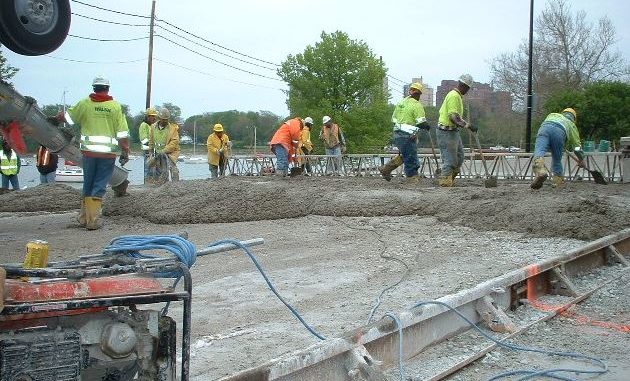
We’ve all been there. No matter how long you’ve been in construction, we all STILL go through it, no matter your age or level of experience. Every so often, it happens to us: We’re “The New Guy.”
A project is well-underway and we’re platooned to join an already-established team. We arrive at the field office on a Monday at 0700hrs and dive into a whole new world. We don’t know the project, the scope of work, the in’s & out’s of everything that’s happened/happening/needs to happen. We don’t know everyone on the crew, their personalities & work habits.
It’s a common occurrence in construction, and in any project environment for that matter. It’s rare that we get the chance to be part of the start-up team – Usually we’re finishing-up a project while a new one is getting started by others and we miss-out on the planning & job set-up activities, then we get pulled-off of the job we’re on because another job needs us – Sound familiar…??
I had a Construction Engineering Show listener reach out to me asking for some thoughts on how to smooth-out the transition when you are assigned to a new squad:
–What are some ways you can make settling-in with a new crew easier?
–How do you know if your work is acceptable to the crew/agency/client/team?
I generified our exchange here in this short post as I thought the ideas were worth sharing.
Be Patient
First, don’t put too much pressure on yourself. Like any project, it takes time to absorb the going’s on, both on the actual project side, but also on the team side. Spend as much time as you can walking the site and flipping plan sheets to get a feel for the jobsite. Don’t get bogged-down in the details, just take-in the overall picture of what’s going on, who the contractors & subs are, where the jobsite access points are, what’s going on today, big picture. Don’t get overwhelmed, just absorb as much as you can. Nobody expects you to land on-site and have it all figured-out in a week….
Your team leaders will probably assign you to cover a crew or two: Maybe a sewer crew, maybe checking bridge deck rebar, or maybe you’ll be assisting another engineer on the team with her assignments. Even though you will have a desire to want to know everything that’s going on, try to stay focused on the operation(s) you’ve been asked to cover, and do a good job with them. Settle-in with your crew(s), get to know the foremen & the crew, build those relationships day-by-day. To me, that’s one of the coolest things we get to do: Spend time in the field with the crews and helping get things built.
And week-by-week, just by being engaged in the job, all of the other goings-on on the project will start to come together. You’ll see who’s working where, what’s coming-up. You’ll see different new subcontractors. You’ll start noticing more nuances of the MOT setup, the retaining wall footings, getting a vibe for the field office atmosphere. It’s worth repeating: Don’t try to feel like you have to rush the process and know everything in a week: Settle-in, find a rhythm, be a sponge, have a curious mindset, and in due time, you’ll have a good feel for what’s going on.
Ask About Your Work Product
Your crew, the agency or client your team is working for will likely have delivery standards for your reports, field notes, etc. Ask your supervisors for examples, say of a good field book entry, a good quantity calculation, a good compaction report and use those as templates for yourself. There’s no need for any of us to have to start from scratch when we have good examples to work from. And then, as you submit your reports, ask the office engineer or your resident/project manager for feedback – Do you like this? What can I change? Am I missing data you’d like in my reports? Just keep asking for input and tailor your work to what the team needs & expects.
Be Yourself & Work Hard
If you know me then this last idea won’t be groundbreaking coming from me: Be yourself & work hard. Everyone loves a hard worker, up and down the chain of command. Be the first guy in the field office in the morning. Be organized. Ask if there is anything that anyone needs help with. Be willing to cover a crew on a Saturday, or cover a night shift, or stay late because one of the girls needs to leave early to get to her son’s baseball game. Building new relationships takes time for all of us, especially when you’re joining an already-established team of people who have been working together for awhile. But, if you come to work with a great attitude, solid work ethic and a willingness to contribute to the team, you’ll settle-in in no time flat!
Nothing new or flashy in these thoughts, just some bare-knuckles ideas for all of us to consider. I hope these ideas help you as you settle-in with your new crew. Let me know in the comments below if you have any thoughts/ideas worth adding – Cheers!!

Be the first to comment